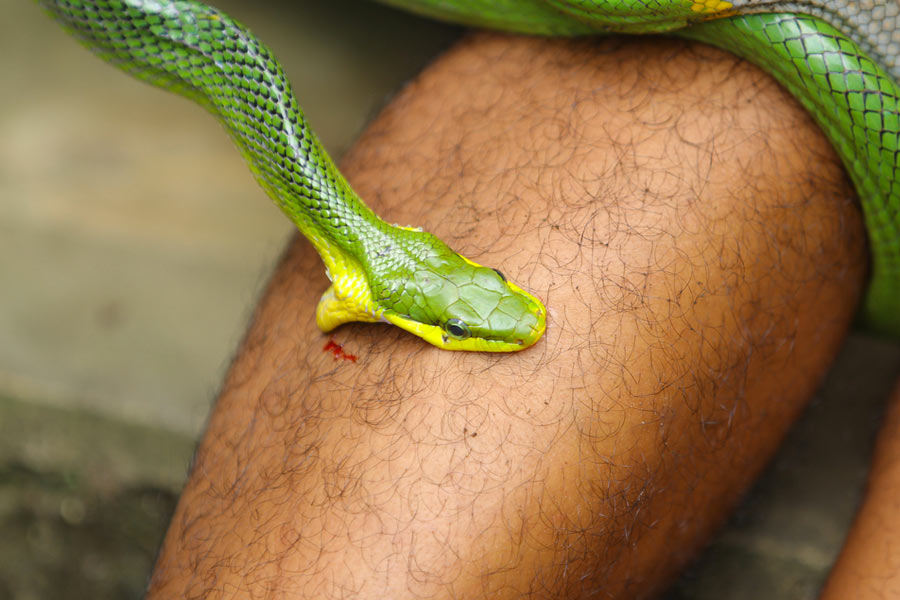A common blood thinner drug could be a possible cheap antidote to treating snakebites, according to a research.
The drug, heparin, could "drastically reduce the terrible injuries from necrosis caused by cobra bites and it might also slow the venom, which could improve survival rates," said corresponding author Greg Neely from the University of Sydney, Australia.
Current antivenom treatments do not effectively address necrosis, or the death of tissues and cells where the snake has struck, which can sometimes result in amputation, according to the researchers.
Using the CRISPR technology to modify human genes, the team identified the different ways in which cobra venom could be blocked.
The authors then repurposed blood thinner drugs, including heparin, and after trialling in human cells and mice, found them to be able to stop necrosis caused by cobra bites. The findings are published in the journal Science Translational Medicine.
Heparin is also produced by many animal and human cells in response to blood clotting. Snake venom is known to bind to it.
The blood thinner drugs act as a 'decoy' antidote. By flooding the bite site with 'decoy' heparin-like molecules, the antidote can counter the toxins in the venom that damage tissues and cause necrosis, the authors explained.
"After successful human trials, (the heparin drug) could be rolled out relatively quickly to become a cheap, safe and effective drug for treating cobra bites," said lead author Tian Du from the University of Sydney.
Du added that heparin is "inexpensive, ubiquitous and a World Health Organisation (WHO)-listed Essential Medicine", which meant that the drug is intended to be available in functioning health systems at all times.
Around the world, about 45-54 lakh people get bitten by snakes every year, with up to 1.38 lakh dying because of complications, according to the WHO.
Snakebite is one of the priorities of the WHO's programme for tackling neglected tropical diseases, with the UN health agency aiming to reduce its global burden by half by 2030. Most of the snakebite cases occur in Africa, Asia and Latin America.
In India, about 50,000 deaths occur of an estimated 3-4 million snakebites annually, accounting for roughly half such deaths globally, according to the Ministry of Health and Family Welfare.
One of the available antivenom treatments in the country is the polyvalent anti-snake venom (ASV), considered effective against four common species, including the cobra.
Except for the headline, this story has not been edited by The Telegraph Online staff and has been published from a syndicated feed.










